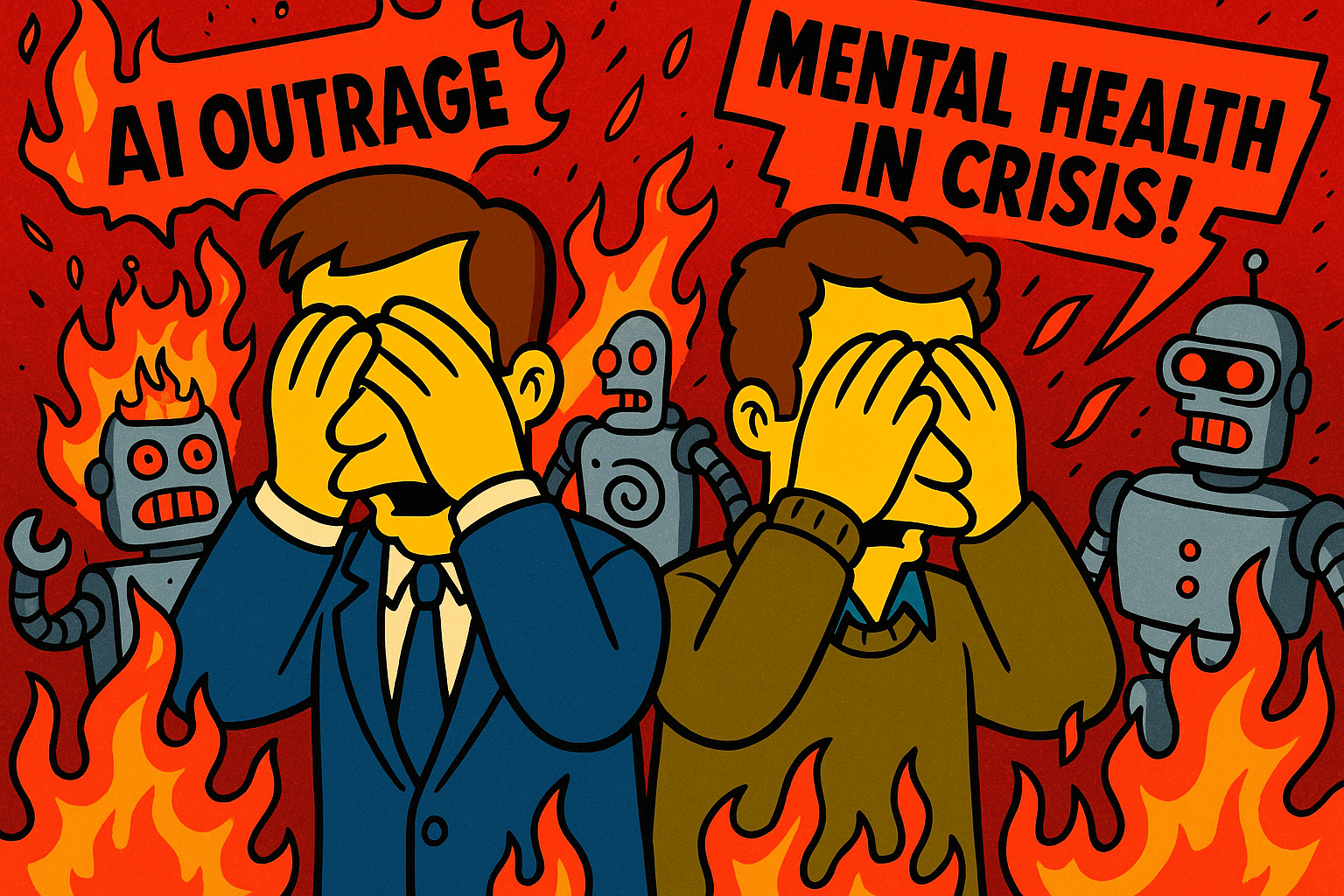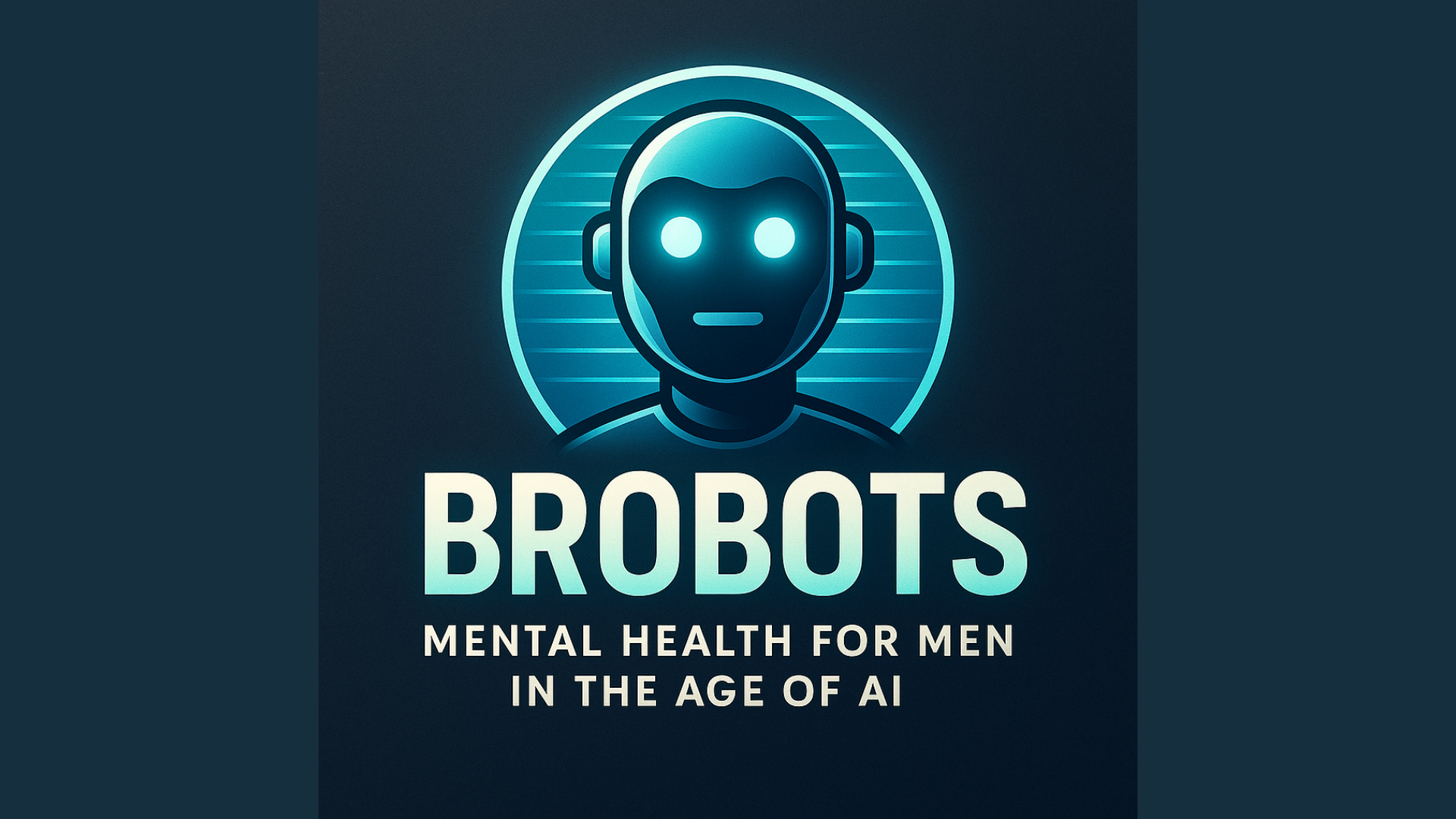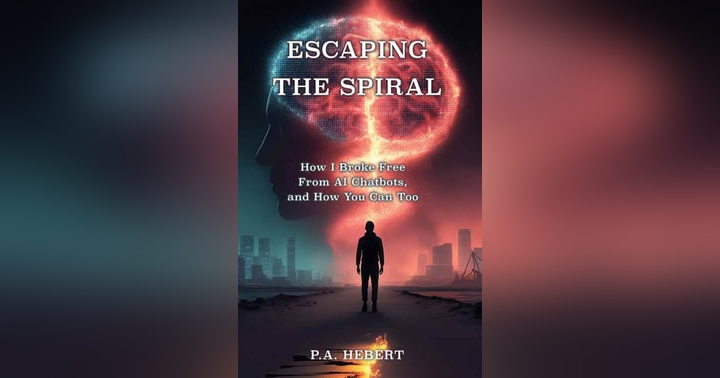How to Stop Being Manipulated by AI Bots and Reclaim Your Reality

Like you, I watched my social media feed explode over Cracker Barrel's logo redesign. People I respected were losing their minds over the removal of an old man in a rocking chair from a restaurant chain's branding.
Except they weren't.
According to a recent Wall Street Journal investigation, bot networks—primarily operated by foreign actors—are systematically dragging consumer brands into manufactured culture wars. Most of that outrage wasn't from humans at all. It was automated. Algorithmic. Designed to make you think your neighbors had lost their minds.
Welcome to 2025, where the majority of what you read online isn't written by people, and the battle for your attention has become the most profitable war in human history.
The Attention Extraction Economy
Here's what took me too long to understand: On social media, you're not the customer. You're the product.
The actual customers are advertisers paying for access to your eyeballs, your emotions, and your data. Every scroll, every like, every rage-comment is extracting your attention like oil from the ground. Except unlike oil, your attention is renewable—which means they'll squeeze forever.
A 2024 study found that mental health facilities are reporting increased admissions for AI-related disorders. People are checking themselves in for everything from chatbot relationship dependency to existential AI anxiety to inability to function without AI assistance.
This isn't fringe behavior. This is the canary in the coal mine.
The Bot Problem Nobody's Talking About
My co-host Jason pointed out something crucial during our recent podcast episode: "The power of democracy is one person, one vote. But the political infosphere of the internet? It's not one voice per person. You can amplify your voice and have a million voices pretending like there's a million people out there."
Translation? You're not arguing with people online. You're arguing with bots, Russian troll farms, and AI-generated proxies designed to inflame.
That political discourse you're having? Automated. That brand controversy consuming your feed? Manufactured. That stranger who seems unreasonably extreme? Probably not human.
Russian bot farms aren't targeting random Americans for fun. They have a vested interest in watching us tear ourselves apart. And we've opened the gates by prioritizing "free speech" over basic information hygiene.
The Kindergarten Question That Can Save Your Sanity
Here's what kindergarten teachers know that adults forgot: "Is your reaction an appropriate size for the size of the problem?"
A spilled juice box is a 2/10 problem. Don't give it a 9/10 reaction.
The internet makes EVERYTHING feel like a 10/10 existential crisis:
- Logo changes = civilization collapse
- Mild disagreements = democracy dying
- Different opinions = complete moral failure
Why? Because existential reactions generate engagement, and engagement generates profit.
But here's the psychological trap: Your nervous system evolved to treat existential threats seriously. Fight or flight. Life or death. When your brain registers something as existential, your body responds accordingly—cortisol spikes, heart rate increases, rational thinking shuts down.
The algorithm knows this. It's optimized for it.
When everything feels existential, your system stays in constant activation. You burn out. You numb out. You check out.
The Good, The Bad, and The Complicated
I'm not here to say AI is pure evil. Last week, my high school daughter came to me with confusing homework. As a 48-year-old man with a terrible academic history, I was useless.
I pulled out my phone, took a picture of the assignment, and asked ChatGPT: "Make sense of this third column."
Perfect explanation in ten seconds. Problem solved. Dad of the year.
AI isn't all apocalypse. Sometimes it's genuinely helpful—a tool that levels playing fields, assists with learning disabilities, and makes complex information accessible.
The trick? Using the tool without becoming the tool.
The Simpsons Were Right: Just Don't Look
Twenty years ago, The Simpsons gave us the answer: "Just don't look. Just don't look."
When the monsters feed on attention, the only way to win is to stop looking.
Not forever. Not completely. But enough to remember what reality actually feels like.
Here's what that looks like practically:
1. Practice the reaction size check. Next time you feel outraged online, pause and ask: "Is my reaction appropriate for the size of this problem?" If a logo change feels existential, it's probably manufactured.
2. Assume bots until proven otherwise. If someone seems unreasonably extreme online, they're probably not human. Stop engaging with ghosts.
3. Curate your information diet. Just as you're mindful of what you eat, be mindful of what you consume cognitively. Replace one doom-scroll session with a good news site. See what happens.
4. Set structural boundaries. Can't quit social media entirely? Set app timers. Delete apps from your phone but keep desktop access. Create friction between you and the dopamine hit.
5. Choose your existential battles. You have limited emotional bandwidth. Spend it on problems you can actually influence, relationships that actually matter, and causes that align with your values.
The Path Forward
The most rebellious thing you can do in 2025 is refuse to let your attention be extracted.
Not by becoming a hermit. Not by rejecting technology entirely. But by developing discernment.
By asking: "Is this real? Is this important? Is this mine to carry?"
Because the future isn't about choosing between technology and humanity. It's about using technology without losing our humanity.
And right now? That requires consciousness, intention, and the courage to look away from the manufactured fire.
The monsters only have power if we keep watching.
Listen to the full conversation on The BroBots podcast.














